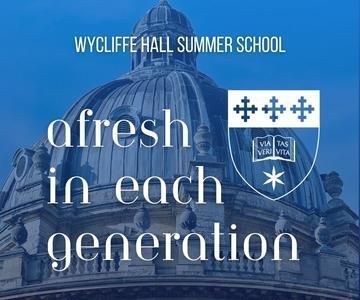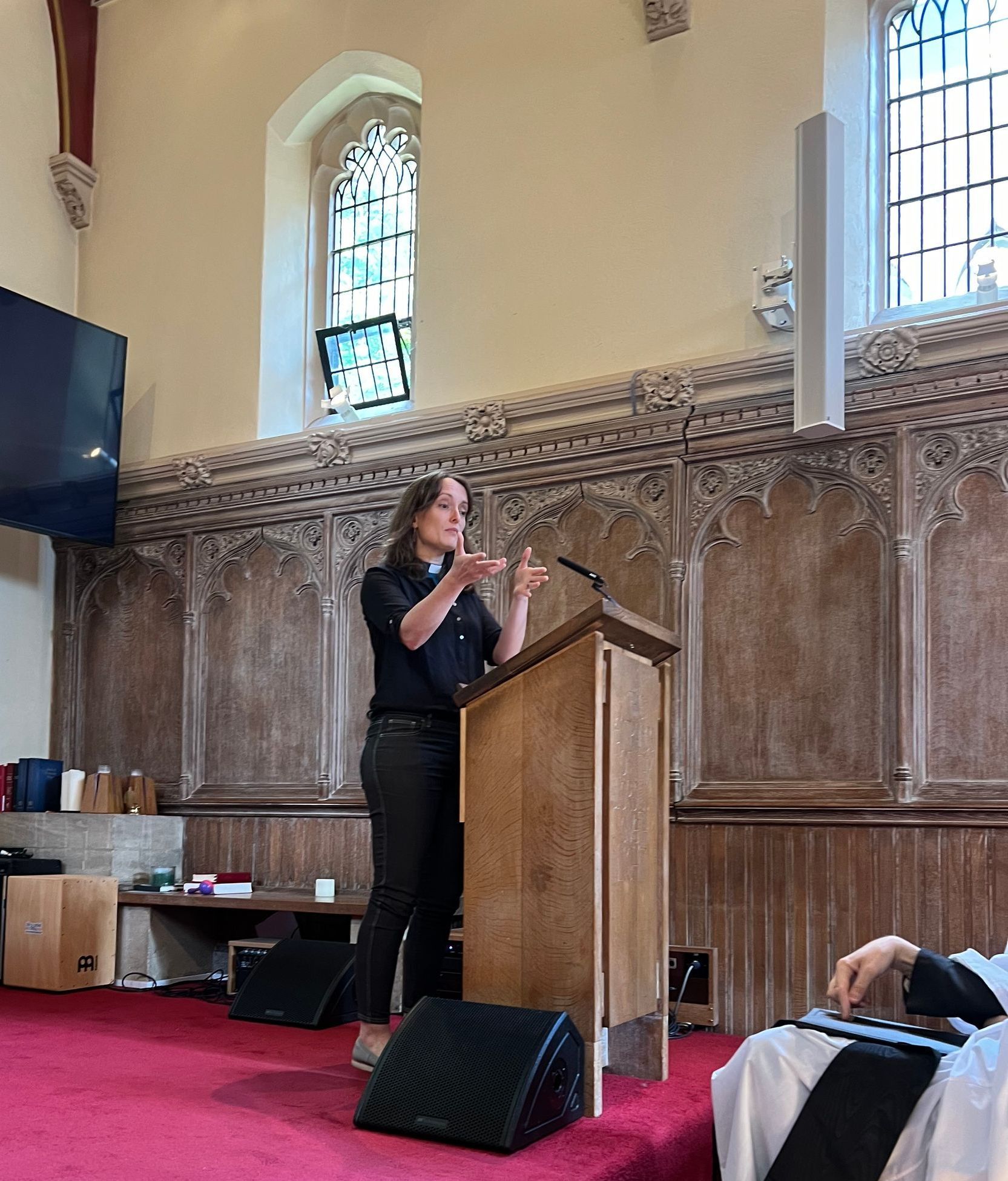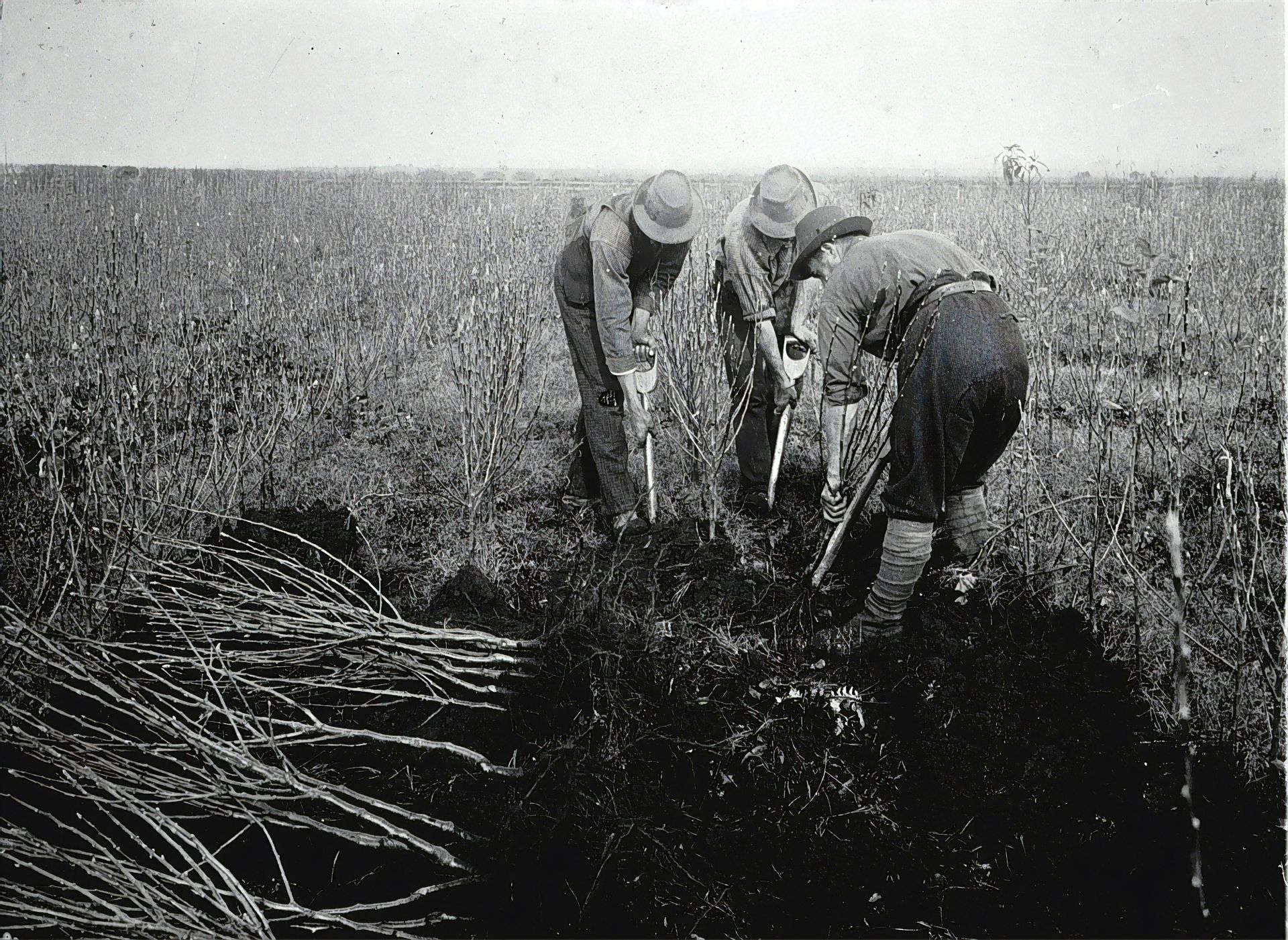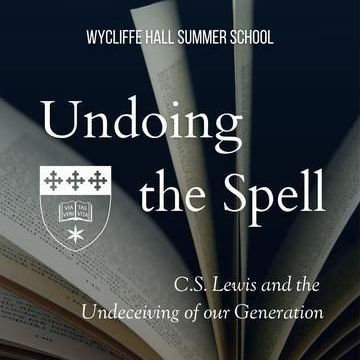So it’s a really good thing to be able to gather and pray and learn this week and spend time reflecting on the God we worship and what it means to proclaim the gospel “afresh in each generation.” The task in every century, every decade of the church’s life, has involved grappling with the reality of a world that is not quite the same as the one we were born into. One in which technology changes, but also one in which people are facing different challenges, different opportunities, and are often asking questions about life and meaning from a different vantage point, a different lens. How do we share we the good news of God in Christ to today’s world? A world where AI is not the stuff of sci-fi but of today? A world that holds so much beauty and life and opportunity for goodness but also a world of conflict, confusion and fear?
Sermon: God's Noble Cedar (Ezekiel 17:22-24)
A sermon I gave at the opening service of the Friends of Wycliffe Hall Summer School 2024. The readings were Ezekiel 17:22-24 & Mark 4:26-34.
About two or three weeks ago, I came across a phrase that was entirely new to me: the “millennial pause.” If you don’t know what it is, let me enlighten you! The two youngest generations of those who’ve reached adulthood are Millenials and Gen Zers. Both are digital natives: they grew up with the internet, cellphones and social media, to some degree. The “millennial pause” describes how when it comes to creating content to put on Instagram or whatever, someone from the older of the two generations—a Millenial—will often pause at the start of their video. Why do they do this? Because older technology took a few seconds to engage when you pressed record. You couldn’t start talking right away otherwise it might not make it onto the video. Gen Zers, on the other hand, laugh at Millenials because they know that the tech today is much quicker to engage when you hit that red button. They also know that if you want someone to watch your video on Instagram or TikTok, you mustn’t waste a second.
With time, things change. Technology advances. New generations grow up. Culture shifts. And those who were once “in the know” start to join those that went before them and cease being relevant in the way they once were. Whether whether it’s small things or large, the only thing guaranteed in life is that the world around us will change.
Regardless of which generation we’re in, what decade of life, or what changes are taking place before us, the God we proclaim afresh—the God revealed in Jesus Christ remains the same. Both our readings today speak to this God, using the image of a sizeable tree that God will bring about. A tree that despite where it came from—whether a mustard seed in Mark or tender twig in Ezekiel—will grow up to bear fruit and provide protection and safety for the birds of the air.
And today, I want us to spend a little time, considering this image and proclamation of God’s goodness and how He works through the lens of Ezekiel 17.
For these verses from the Old Testament describe a remarkable vision of hope. Read on its own, we can certainly see its optimism. This positive expectation that God is good and brings about good things. Look at what God is going to do! Look at the tree He will grow! Look at his power to bring life! But I want to suggest it’s a lot more than that as well. For this vision of hope is for those for whom such a life seems impossible.
God’s words in Ezekiel 17 are a message for a people who have had their lives upended and homes destroyed, a people who have been taken into captivity in Babylon. A people who’ve seen their young, 18 year old, king- Johiachin- taken as a prisoner of war to a foreign city. A people who’ve had their God-given place of worship, sacrifice and renewal of God’s promises and covenant, torn down and left in ruins. These are words for God’s people of Judah, facing the hopelessness of exile.
For whoever wants to save their life will lose it, but whoever loses their life for me and for the gospel will save it. What good is it for someone to gain the whole world, yet forfeit their soul?
(Mark 8)
For all those who exalt themselves will be humbled, and those who humble themselves will be exalted. (Luke 14)
***
The Judean exile did not last forever. Just a few decades later, when another generation had come along, Jehoiachin’s grandson, Zerubbabel, brought the people back into the land following the fall of the Babylon.
And that is the same God we worship today. The same God we proclaim today. He brings back the humble from the exile of their sin, as they follow their risen king. He raises the dead. He brings new life. And one day, every generation will see it. The proud will be brought low. All injustices squared away. All unrighteousness dealt with.
One of the desert fathers, Abba Anthony, is reported to have said this: "Let us not lose heart, and let us not think that what we are doing takes too much time or is too great an undertaking, for the sufferings of the present time do not compare to the glory that is going to be revealed to us. Let us not look at the world and think that we have renounced great things, for even the whole world is very small when compared with all of heaven. If we were lords of all the earth and renounced the whole world, once again that would not compare with the kingdom of heaven."
This is the remarkable hope we share afresh in each generation. Regardless of the challenges of this world, even with seismic changes, our God remains the same. He brings back to life. He redeems. He brings low the proud and raises up the lowly.
So let us be teachable, let us trust Him, and let us wait with hope for when his glory will be revealed.
******
Cover photo by Casey Horner on Unsplash






